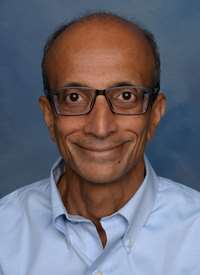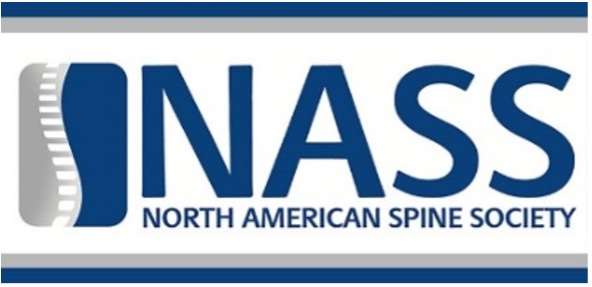Research at the Center for Cervical Myelopathy
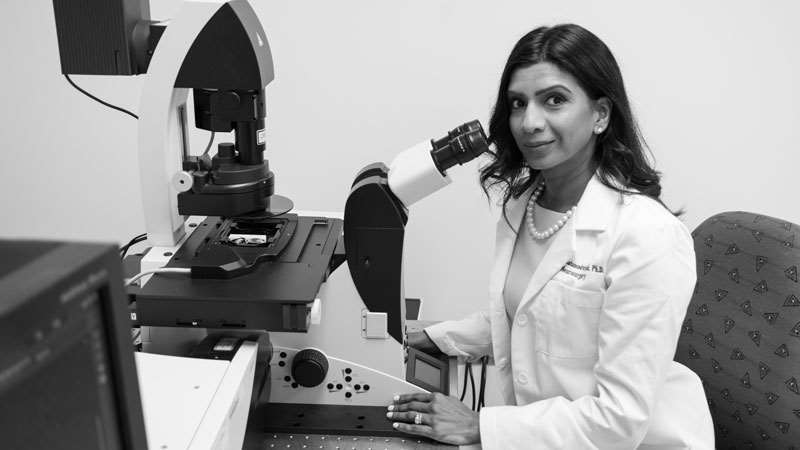
Basic Science Research
The Basic Science Cervical Myelopathy research team is utilizing an animal model to investigate the underlying pathophysiology of degenerative cervical myelopathy and develop potential therapeutic strategies, including pharmacological, neuromodulation, and surgical approaches.
Participating Laboratories
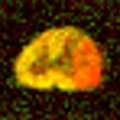
The Budde Laboratory seeks to improve patient care and clinical outcomes for individuals with injury and diseases affecting the spinal cord, with a focus on developing and employing magnetic resonance imaging (MRI) as a tool for understanding spinal cord biology and pathology, using the MRI's translational value to bridge the gap between preclinical animal studies and human clinical research.
Learn more about the Budde Lab
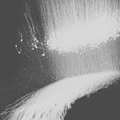
Research led by Dr. Kajana Satkunendrarajah seeks to enhance the quality of life for individuals with neurological disorders by deciphering the neural control of movement and breathing in health and disease, discovering and developing innovative therapeutics for the treatment and restoration of motor control after neurological disorders, and translating found therapies for individuals with impaired function.

The Neural Engineering, Interfacing and Optimization Laboratory (NEIMO Lab) employs a combination of neurophysiology, optogenetics, viral gene therapy, and optical imaging techniques to develop novel neuroprosthetic and gene therapy approaches to alleviate motor deficits caused by conditions such as spinal cord injury and amyotrophic lateral sclerosis.
Imaging Research
Led by Dr. Matthew Budde, the Imaging Cervical Myelopathy research team utilizes novel imaging techniques to explore and inform the causes, progression and treatment of degenerative cervical myelopathy via non-invasive treatment strategies.
Participating Laboratories
 The Budde Laboratory seeks to improve care and outcomes for patients with injury and diseases affecting the spinal cord, with a focus on developing and employing magnetic resonance imaging (MRI) as a tool to understand spinal cord biology and pathology, using the MRI's translational value to bridge the gap between preclinical animal studies and human clinical research.
The Budde Laboratory seeks to improve care and outcomes for patients with injury and diseases affecting the spinal cord, with a focus on developing and employing magnetic resonance imaging (MRI) as a tool to understand spinal cord biology and pathology, using the MRI's translational value to bridge the gap between preclinical animal studies and human clinical research.Learn more about the Budde Lab
 The Koch Laboratory engages in a wide variety of MRI technical development efforts, with particular interest in modeling, use, and compensation of subtle magnetic field distortions in magnetic resonance imaging. Efforts have focused on reconstruction methods, as well as applying MRI-based tissue magnetism measurements with specific interest in application to the imaging of neurologic disease.
The Koch Laboratory engages in a wide variety of MRI technical development efforts, with particular interest in modeling, use, and compensation of subtle magnetic field distortions in magnetic resonance imaging. Efforts have focused on reconstruction methods, as well as applying MRI-based tissue magnetism measurements with specific interest in application to the imaging of neurologic disease.
Learn more about Dr. Koch's Research
 In an effort to improve our understanding of spinal cord pathology and enhanced recovery of function, the Vedantam Laboratory performs clinical and translational research for spinal cord disease states such as DCM and spinal cord injury. The Lab is investigating the pathophysiology of DCM through imaging, finite element modeling and quantitative functional assessments and is working on implementing novel training paradigms to restore hand function after cervical spine surgery for cervical myelopathy.
In an effort to improve our understanding of spinal cord pathology and enhanced recovery of function, the Vedantam Laboratory performs clinical and translational research for spinal cord disease states such as DCM and spinal cord injury. The Lab is investigating the pathophysiology of DCM through imaging, finite element modeling and quantitative functional assessments and is working on implementing novel training paradigms to restore hand function after cervical spine surgery for cervical myelopathy.
Biomarkers Research
The Cervical Myelopathy Biomarkers research team utilizes animal models of degenerative cervical myelopathy in its efforts to elucidate the pathway towards biomarker discovery and validation.
Participating Laboratories

Led by Dr. Kajana Satkunendrarajah, the Kajana Laboratory seeks to enhance the quality of life for individuals with neurological disorders by deciphering the neural control of movement and breathing in health and disease, discovering and developing innovative therapeutics for the treatment and restoration of motor control after neurological disorders, and translating found therapies for individuals with impaired function.
LEARN MORE ABOUT DR. SATKUNENDRARAJAN'S RESEARCH
 In an effort to improve our understanding of spinal cord pathology and enhanced recovery of function, the Vedantam Laboratory performs clinical and translational research for spinal cord disease states such as DCM and spinal cord injury. The Lab is investigating the pathophysiology of DCM through imaging, finite element modeling and quantitative functional assessments and is working on implementing novel training paradigms to restore hand function after cervical spine surgery for cervical myelopathy.
In an effort to improve our understanding of spinal cord pathology and enhanced recovery of function, the Vedantam Laboratory performs clinical and translational research for spinal cord disease states such as DCM and spinal cord injury. The Lab is investigating the pathophysiology of DCM through imaging, finite element modeling and quantitative functional assessments and is working on implementing novel training paradigms to restore hand function after cervical spine surgery for cervical myelopathy.
Learn more about the Vedantam Lab
Rehabilitation Research
The Rehabilitation Cervical Myelopathy research team, led by Brian Schmit, PhD, and Allison Hyngstrom, PT, PhD, has established objective biomechanical tests of dynamic and hand function to assess sensorimotor dysfunction in DCM.
Participating Laboratories
 At Marquette's Integrative Neural Engineering and Rehabilitation Laboratory (INERL), Drs. Schmit, Hingstrom, and collaborators seek to advance knowledge in the field of neural engineering and rehabilitation of those people with neural disability.
At Marquette's Integrative Neural Engineering and Rehabilitation Laboratory (INERL), Drs. Schmit, Hingstrom, and collaborators seek to advance knowledge in the field of neural engineering and rehabilitation of those people with neural disability.
 In an effort to improve our understanding of spinal cord pathology and enhanced recovery of function, the Vedantam Laboratory performs clinical and translational research for spinal cord disease states such as DCM and spinal cord injury. The Lab is investigating the pathophysiology of DCM through imaging, finite element modeling and quantitative functional assessments and is working on implementing novel training paradigms to restore hand function after cervical spine surgery for cervical myelopathy.
In an effort to improve our understanding of spinal cord pathology and enhanced recovery of function, the Vedantam Laboratory performs clinical and translational research for spinal cord disease states such as DCM and spinal cord injury. The Lab is investigating the pathophysiology of DCM through imaging, finite element modeling and quantitative functional assessments and is working on implementing novel training paradigms to restore hand function after cervical spine surgery for cervical myelopathy.
Biomechanics Research
Led by Dr. Narayan Yoganandan, the Biomechanics Cervical Myelopathy research team is focuses on using patient-specific 3D Finite Element models (FEM) of the cervical spine and spinal cord to improve our understanding of degenerative cervical myelopathy.
Participating Laboratories
 The Yoganandan Laboratory conducts transformational research studies in the field of biomechanics and neuroscience. Ongoing research utilizes computer and statistical models to develop personalized medicine for spinal disorders, develop response corridors and injury risk functions for the head and spine, and determine human head-spine responses under physiologic and traumatic loads.
The Yoganandan Laboratory conducts transformational research studies in the field of biomechanics and neuroscience. Ongoing research utilizes computer and statistical models to develop personalized medicine for spinal disorders, develop response corridors and injury risk functions for the head and spine, and determine human head-spine responses under physiologic and traumatic loads.
Learn more about the Yoganandan Lab
 In an effort to improve our understanding of spinal cord pathology and enhanced recovery of function, the Vedantam Laboratory performs clinical and translational research for spinal cord disease states such as DCM and spinal cord injury. The Lab is investigating the pathophysiology of DCM through imaging, finite element modeling and quantitative functional assessments and is working on implementing novel training paradigms to restore hand function after cervical spine surgery for cervical myelopathy.
In an effort to improve our understanding of spinal cord pathology and enhanced recovery of function, the Vedantam Laboratory performs clinical and translational research for spinal cord disease states such as DCM and spinal cord injury. The Lab is investigating the pathophysiology of DCM through imaging, finite element modeling and quantitative functional assessments and is working on implementing novel training paradigms to restore hand function after cervical spine surgery for cervical myelopathy.
Research Faculty
The Center for Cervical Myelopathy is proud to bring together world-class researchers from Froedtert, the Medical College of Wisconsin, and Marquette University making critical advancements in the fields of neurosurgery, neural engineering, biomechanics, orthopaedics, and brain injury research.
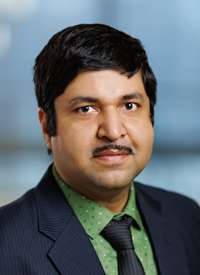
Anjishnu Banerjee, PhD
Associate Professor, Biostatistics

Timothy Boerger, PhD
Postdoctoral Researcher, Department of Neurosurgery
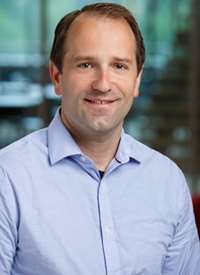
Matthew D. Budde, PhD
Associate Professor, Department of Neurosurgery

Jordan Gliedt, DC
Associate Professor; Director, Doctor of Chiropractic Fellowship Program; Director, Chiropractic Student Preceptorship Program
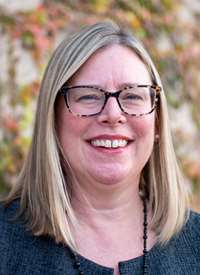
Allison Hyngstrom, PT, PhD
Professor, Department Chair
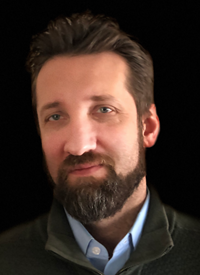
Kevin M. Koch, PhD
Adjunct Professor
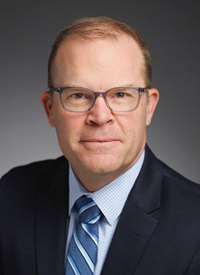
Michael McCrea, PhD, ABPP
The Shekar N. Kurpad, MD, PhD, Chair in Neurosurgery; Professor; Vice Chair of Research; Co-director, Neurotrauma Research Center; Director, Brain Injury Research Program
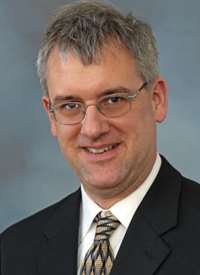
Brian D. Schmit, PhD
Professor, Joint Department of Biomedical Engineering; Hammes Family Chair

Aditya Vedantam, MD
Associate Professor; Director, Minimally Invasive Surgery; Director, Center for Cervical Myelopathy; Adjunct Faculty in Biomedical Engineering, Radiology, and Orthopedics
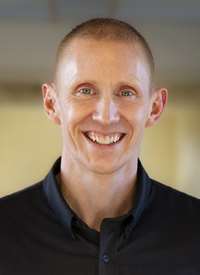
Jordan Williams, MD, PhD
Assistant Professor, Joint Department of Biomedical Engineering; Neurosurgery
